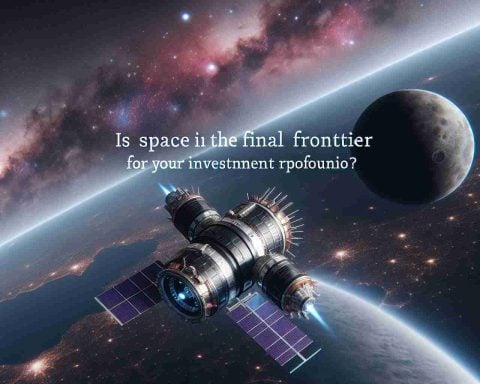As we move deeper into an era dominated by digital advancements, China is making significant strides with its innovative approach to satellite technology, particularly in the field of quantum communication. The recent launch of the Mozi, also known as “Micius,” the world’s first quantum-enabled satellite, marks a transformative moment in how global communication networks could evolve.
Quantum Communication: A Game Changer
The Mozi satellite represents a pioneering step in quantum communication technology. Unlike traditional methods, which rely on radio waves, Mozi utilizes quantum entanglement—a phenomenon where particles become interconnected and the state of one instantaneously affects the state of another, even across vast distances. This approach promises unprecedented levels of security, as any attempt to eavesdrop on communication would immediately be detected.
Revolutionizing Global Connectivity
China’s bold venture into quantum satellites might revolutionize global connectivity, leading to the development of a virtually unhackable communication network. This could significantly enhance security for sensitive data transmissions, benefiting not just government and military applications, but also financial transactions and personal online interactions.
Challenges and Future Prospects
While the potential of quantum satellites is enormous, there are challenges to overcome, including technical hurdles in quantum state management and the need for international collaboration on quantum infrastructure. Nonetheless, China’s investments indicate a commitment to lead in this field, setting a precedent for future innovations. As the quantum race accelerates, the implications for technology and security are vast, and the world will be watching closely.
The Quantum Leap: How China’s Mozi Satellite Could Change the Future of Global Communication
As we stand on the brink of a new era in communication, China’s groundbreaking Mozi satellite has positioned itself at the forefront of quantum technology. This development offers a glimpse into a future where quantum communication could reshape global networks with unprecedented security and efficiency.
Exploring the Benefits and Limitations of Quantum Communication
The primary advantage of quantum communication lies in its inherent security. Quantum encryption, unlike classical methods, leverages the principles of quantum mechanics to ensure that data cannot be intercepted without detection. This can revolutionize the integrity of data transmission, making breaches and hacks virtually impossible. However, the road to widespread quantum communication is fraught with challenges. Technical difficulties, such as managing quantum states over long distances and ensuring stable entanglement, represent significant hurdles. Additionally, the current infrastructure needs substantial upgrades to accommodate this new technology efficiently.
Quantum Communication: Use Cases and Market Potential
Quantum communication’s most immediate applications are found in sectors requiring high-level security, such as government, military, and finance. The banking industry, for example, could see considerable benefits by securing transactions against cyber threats. Moreover, as technology develops, personal data protection could be drastically enhanced, paving the way for more secure social and digital platforms.
The market for quantum communication is poised for growth, with global investments expected to increase considerably in the coming years. Companies pioneering this technology, alongside national governments, could create a competitive landscape similar to the current space race.
Security and Sustainability Considerations
While quantum communication promises improved security, it also introduces new security challenges unique to its technology. Developing global standards and promoting international cooperation will be vital to secure quantum channels effectively. Sustainability, too, is a key consideration, with efforts needed to minimize the environmental impact of launching and maintaining quantum satellites.
Collaborations and Future Trends
International collaborations might be necessary to fully realize the potential of quantum communication. Countries could benefit from shared research and development initiatives, which may lead to the establishment of multinational quantum networks. As quantum technology continues to evolve, we can expect ongoing innovations and advancements that could eventually render current communication methods obsolete. Such trends will likely shape future digital landscapes, driving interest and investment from both public and private sectors.
For more information on innovations in technology, you may visit Economist.



















